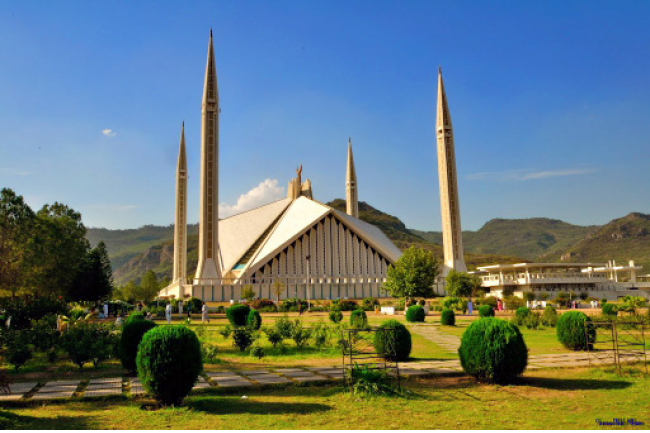Pakistani government is embroiled in two major challenges, the issue of combating terrorism and the Panama Papers, which has put pressure on Pakistani Prime Minister Nawaz Sharif. Recently, the issue of Panama Papers also dubbed as “Panamagate” has turned into a hot issue and making the daily headlines in Pakistani newspapers. The latter has been a bone of contention between PML-N and Pakistan Tahreek-e-Insaf (PTI) led by Imran Khan since the scandal broke in April 2016.
According to Panamagate, eight off-shore companies had links with the family of Sharif and his brother, Chief Minister of Punjab, Shahbaz Sharif. It added that the prime minister’s children Maryam, Hassan and Hussain “were owners or had the right to authorize transactions for several companies”.
The issue prompted the opposition parties and the public to show strong reaction. Realizing that silence would deepen the crisis, Prime Minister Nawaz Sharif addressed Pakistani nation on 5 April 2015 saying that he was open to the formation of a judicial commission to probe his family’s alleged finances in offshore tax-havens. According to him, his father established an industrial plant in Makkah, following the military coup in 1999. The plant was “later sold, and my sons invested the funds into their businesses.”
In another address in April 22, Sharif announced that his government had decided to formally ask then Chief Justice of Pakistan to set up a judicial commission for investigations into Panama Papers leak.
The opposition parties stood against the PML-N with firm determination and Pakistan Peoples Party (PPP) Chairperson Bilawal Bhutto-Zardari called on Sharif to step down. On 29 August 2016, The PTI filed a petition with the Supreme Court seeking disqualification of Sharif from his office as well as the National Assembly. It has been filed against 10 respondents, which included Nawaz Sharif, his daughter, sons and government institutions.
On 30 September 2016, Imran Khan launched a big demonstration in order to put pressure on state institutions which, according to him, were not working judiciously on the Panama Papers issue. Imran Khan called on party workers to lay siege to Islamabad on Oct 30, telling them to paralyze the capital until Sharif resigns or presents himself for accountability.
Moreover, Pakistani Army Chief Raheel Sharif urged the premier to resolve the Panma issue saying that the protracted controversy over Panama Papers investigation was affecting governance and national security and, therefore, the issue needed to be urgently brought to a close.
To cut it short, a five-judge larger bench headed by Justice Asif Saeed Khosa was constituted by the Supreme Court to resume hearing of the Panama Papers case from January 4, 2017.
The lawyer for Prime Minister Nawaz Sharif’s sons sprang a new surprise before the Supreme Court by claiming that the bearer share certificates of the four London flats remained in the custody of Maryam Nawaz — the prime minister’s daughter — between February and July 2006. Salman Akram Raja told the court that a trust deed was executed between Maryam and Hussain Nawaz in February 2006, following which she acted as a trustee for her brother. The confession could prove to be a major blow to the Sharif’s case.
As the Supreme Court (SC) resumed hearing the Panama Papers case on Monday, Finance Minister Ishaq Dar and the Sharif family’s lawyers submitted separate objections to the “damning” final report of the joint investigation team (JIT) that probed allegations of money laundering against the Sharif family.
Hearing the arguments from lawyers of Pakistan Tehreek-i-Insaf (PTI), Jamaat-e-Islami (JI), and Sheikh Rashid, the judges directed PML-N’s lawyers to present their arguments on Tuesday, 18 July 2017.
It is worth saying that on Sunday, Sharif held consultative meetings with his legal and political teams to frame the family’s stance and devise a strategy to counter political rivals.
Hence, the Panama issue is the crux of the challenges in Pakistan which has outweighed security problem. That is to say, the security issue will remain unaddressed or will move slowly since the recent case has turned to the hottest issue in Pakistan. On the one hand, warring parties seek to intensify their attacks but on the other hand the PML-N opposition parties intend to consolidate their own political bases and prepare for future election. There seems to be no partisan agreement although the apex court is likely to show tendency towards an agreement to shelve the case until 2018 election. Up to now, Sharif has refused all calls to step down. Both parties’ counsels will do everything in their power to win the case. Now Pakistani nation must be waiting impatiently to see the court’s today decision. However, it is believed that there will be long distance to the final verdict.
Home » Opinion » Pakistan on the Verge of Political Syndrome
Pakistan on the Verge of Political Syndrome
| Hujjatullah Zia

